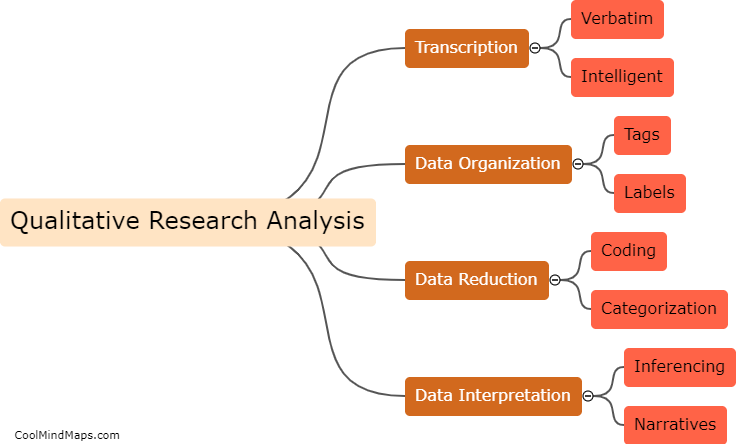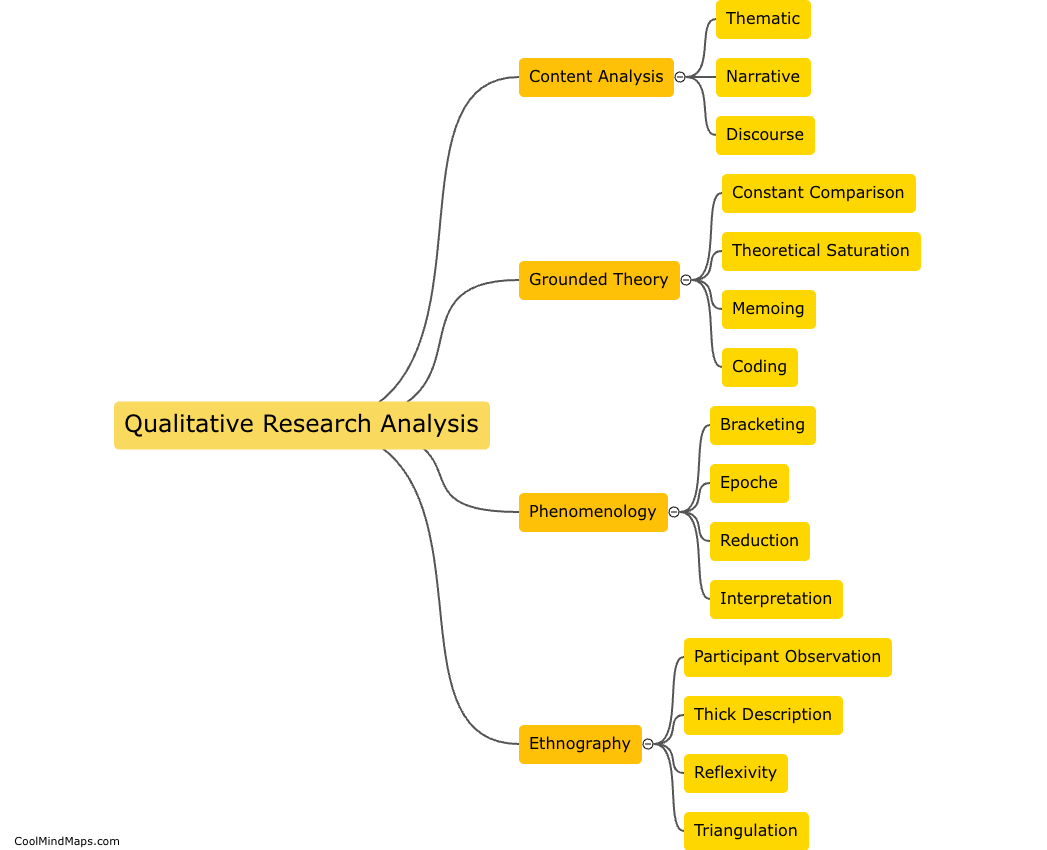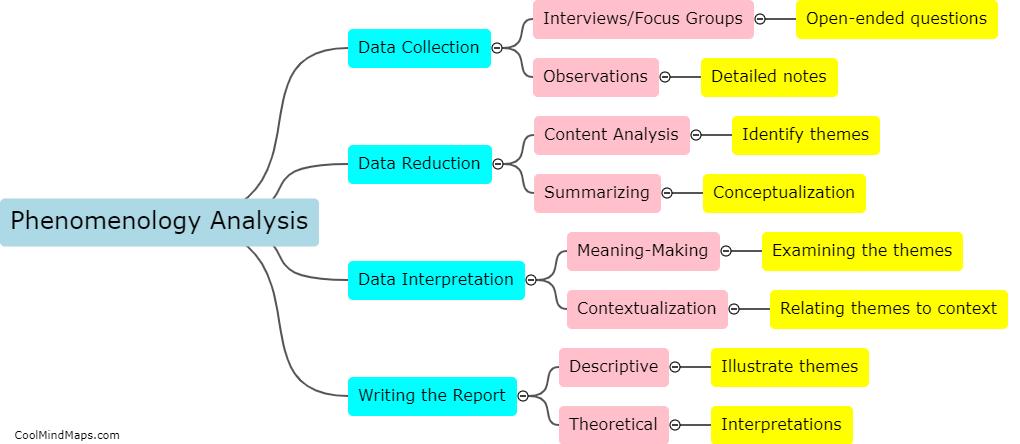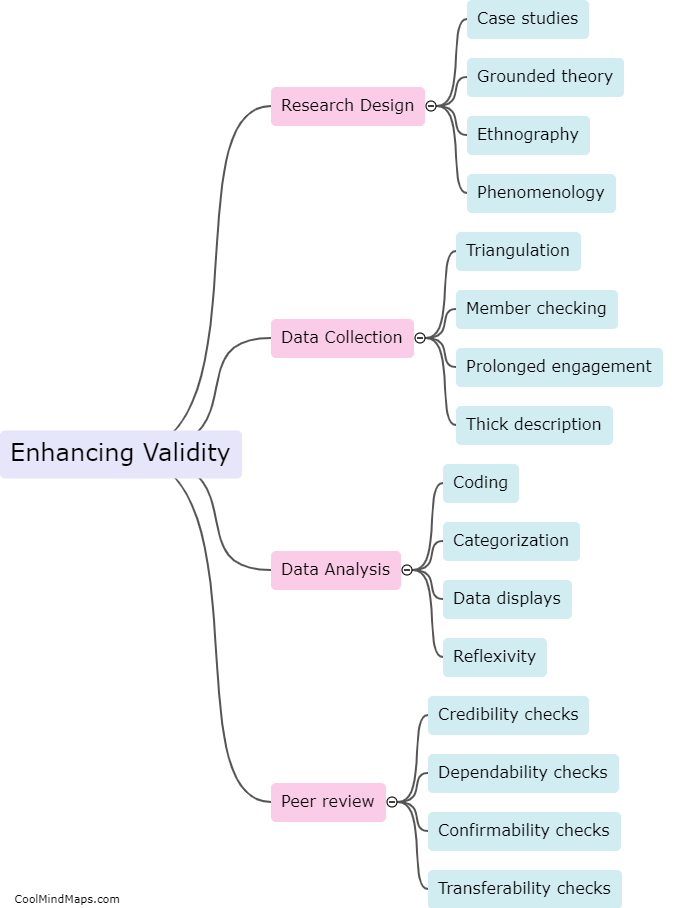What is validity in qualitative research?
Validity in qualitative research refers to the extent to which the findings of a study accurately reflect the phenomenon being studied. It is concerned with whether the research truly captures the intricacies of the participants' experiences, perspectives, and beliefs. In other words, validity in qualitative research is a measure of how well the study measures what it is supposed to measure. To ensure validity, researchers must employ methods such as triangulation, member checking, and peer debriefing, among others. These methods aim to ensure that the research is credible, transferable, dependable, and confirmable. Ultimately, validity is crucial for ensuring that the findings of a study are trustworthy, and that they have implications for theory, practice, and policy.

This mind map was published on 20 April 2023 and has been viewed 94 times.











